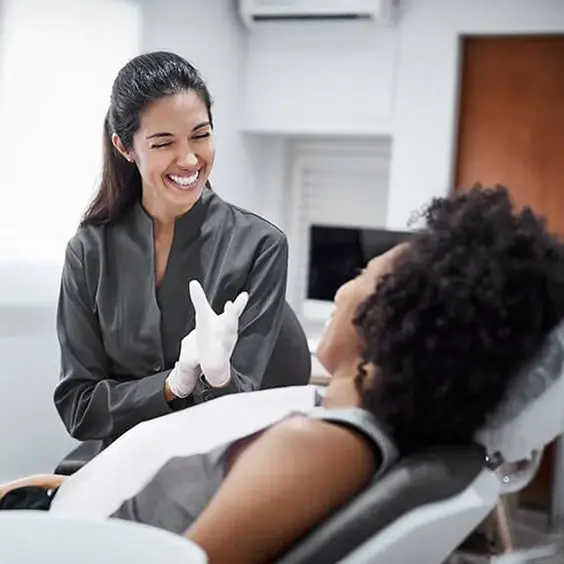Personalized Sleep Dentistry in Pennsylvania, PA to Improve Your Quality of Sleep Every Night
We strive to provide a safe, trusted, pleasant experience for our sleep dentistry patients by making every procedure as comfortable as possible.

Service offered at the following location(s): Hollidaysburg, Johnstown and Selinsgrove

Why Sleep Dentistry?
Sleep dentistry can be life-changing. Problems like sleep apnea can cause significant problems with your dental health and your overall physical health. If left untreated, sleep apnea can result in many health problems, including but not limited to:
- High blood pressure
- Stroke
- Heart failure, heart attack, irregular heartbeat
- Diabetes
- Depression
There are many benefits to using sleep dentistry as part of your dental routine, including:
- It can improve the quality of your sleep and overall health.
- Most options are non-invasive, discreet, and affordable.
What to Expect
If you experience morning headaches, fatigue, or difficulty concentrating, you may have interrupted sleep patterns associated with sleep apnea. We believe that teamwork between you, your physician, and your dentist is essential to implementing an effective individualized treatment plan for your sleep disorder.
BeforeTreatment
People snore because the air moving through the nasal passage is affected by a blockage, either in the nose or the mouth, which causes the snoring noise. When the airway is blocked, it takes more effort to draw air in, making it harder to breathe. Some people even stop breathing (apneic event) for a few seconds. This is called sleep apnea.
Finding out what dental sleep disorder you may have is extremely important before you begin receiving treatment using sleep dentistry.
DuringTreatment
A custom-fitted oral appliance or mouthpiece should be worn by most people who snore or have obstructive sleep apnea (OSA).
The mouthpiece adjusts your bottom jaw forward to make more room at the back of the throat. This helps keep the airway open, causing less obstruction, minimizing snoring and sleep apnea.
Other treatment options that can be explored during your treatment are:
- Adjust sleeping position
- Continuous positive air pressure (CPAP)
- Surgery. Removal of tonsils and soft palate typically when other treatment options are unsuccessful.
There are many different types of sleep apnea oral appliances approved by the FDA. The success rate is quite high when using oral appliances. For severe OSA, CPAP is the most effective treatment option.
AfterTreatment
Your First Visit
Modern Dentistry
All the latest technology can be found at all of our Pennsylvania, PA dental offices.Judgment-Free Office
We're here to help you feel confident in your smile. We provide a safe, judge-free zone for any dental issue or concern you have.On Your Schedule
Taking care of your dental health should fit within your schedule. We are open late and on weekends so you can get the care you need.Insurance
and Financing









No Insurance?
No Problem.
Making An Appointment Is Easy










FAQ
Frequently Asked Questions
Anyone, regardless of age, can have sleep apnea. However, some of the top risk factors are:
- A person over 40
- A person who is overweight
- A person with large tonsils, a small jaw, or a large tongue
- A family history of sleep apnea
Portability – Because they are small and lightweight and do not require electricity or batteries, oral anti-snoring appliances are excellent for travel where CPAP machines can be bulky and take up space.
Comfort – For mild to moderate OSA, oral appliances are just as effective as CPAP therapy and more comfortable.
Low Maintenance - Mouthpieces are low-maintenance, with no replacement parts and no need for re-ordering supplies.
Quiet – Oral appliances are silent, unlike the CPAP.
Discreet – Since the appliance is worn at night, there is no stigma associated with a treatment or disease.
Affordable – While most insurance companies cover both the CPAP and dental oral appliances for sleep apnea, the oral appliance is often more affordable.
Long-term results – In most cases, the oral appliance treatment option has excellent long-term results, since most people continue to use them because they are comfortable, convenient, affordable and discreet.
- KW Oral Appliance Therapy
- Mandibular Advancement Devices (MADs)
- Tounge-Stabilizing Devices (TSDs)
- Continuous Positive Airway Pressure Devices and Therapy (CPAP)